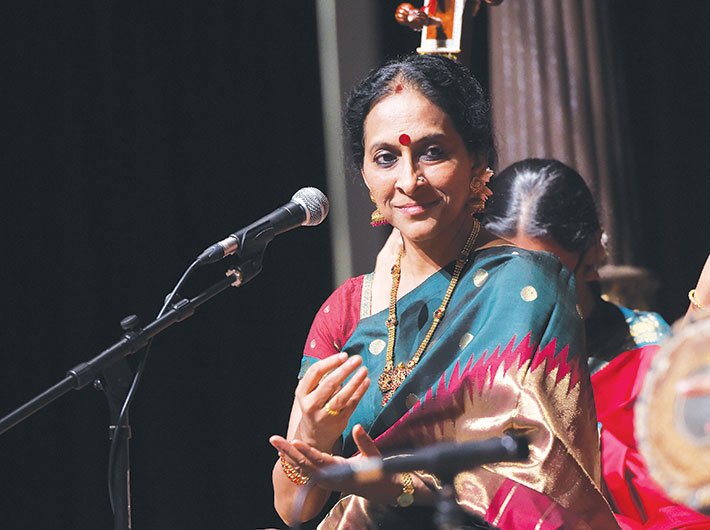Oscar-nominated Carnatic vocalist Bombay Jayashri is a phenomenal performer, teacher and composer. She grew up in a family which is into music from generations. She has performed at festivals and concerts in more than 35 countries. She was nominated for ‘Pi Lullaby’ in the film Life of Pi in the best original song category in the 2012 Oscars. Jayashri has worked with AR Rahman, Shubha Mudgal, Leela Samson, Mahesh Dattani, Mani Ratnam and Revathi, among others. She believes that music should be part of primary education and that it is everyone’s responsibility to promote music.
How were you associated with music?
I come from a family where everyone loved all genres, all the notes and the swaras.
Has the training in classical singing has changed over time?
It has changed like the changes happening in everything around us. For instance, generations before my teachers, training in music was done like the Vedas were taught. With technology, this has changed. There are recordings and technological aids which have changed learning considerably. Now, there are mics and air-conditioned halls. Technology has its ups and downs, but it has made us reach out to more people.
Your experience been working with different musicians?
My premise is that whoever I work with, whether a Carnatic, or Hindustani, or a western musician, their music comes from the same notes. Working with them, I see art from their eyes and I draw inspiration. It is wonderful to work through their language, sensitivity, discipline and variety. I feel enriched and I come back being a better Carnatic musician and a better human being.
Why are you called ‘Bombay’ Jayashri?
The tradition in Carnatic music is to put the name of the village or town where one grew up. I grew up in Bombay. A renowned critic decided that it should be part of my name. I retained it and I like it. I love Bombay. Everything I am is because of the city. In fact, so many people address me as Bombay!
Have you noticed any change in the audience of classical music?
Quite a bit; even from the time I started performing. One change is in the cutting down of the duration of performances. Music is easily accessible through YouTube and iTunes. It reaches the audience before I physically present it to them. No idea whether it is good or not. I agonise sometimes, that the audience is losing patience. They’re not ready to wait. Earlier, the time between two of my concerts was one year. The audience used to wait and wonder where I’ve gone, so that I can pick up from where I left. They encouraged me through this journey of learning and evolving for my betterment. Now, I feel this is largely absent.
Your advice to future musicians?
Art is a deep, wide, broad and enigmatic form; one can never understand where we’re going after years of practice. Least we need is patience. Being in hurry can make one miss the magic.
Is government doing enough to promote music?
We are all responsible to promote it. We need to get music into the education system. Every child has the right to have music in his/her life. It is important to have music as a subject in the primary years of education starting from kindergarten. That will become make a big difference. We’re so culturally rich. Art will sensitise us, will make us beautiful people and make our relationships lovely. I have a dream of such an India. Already the world looks up to us [India] for our art and spirituality. Why don’t we give it to our children?
Where do you see India ten years from now?
Beautiful. There is so much good everywhere in the world but when I come back, I am proud to be an Indian, except if we could be cleaner, greener, handle population and corruption.
(The interview appears in the May 16-31, 2017 issue of Governance Now)



